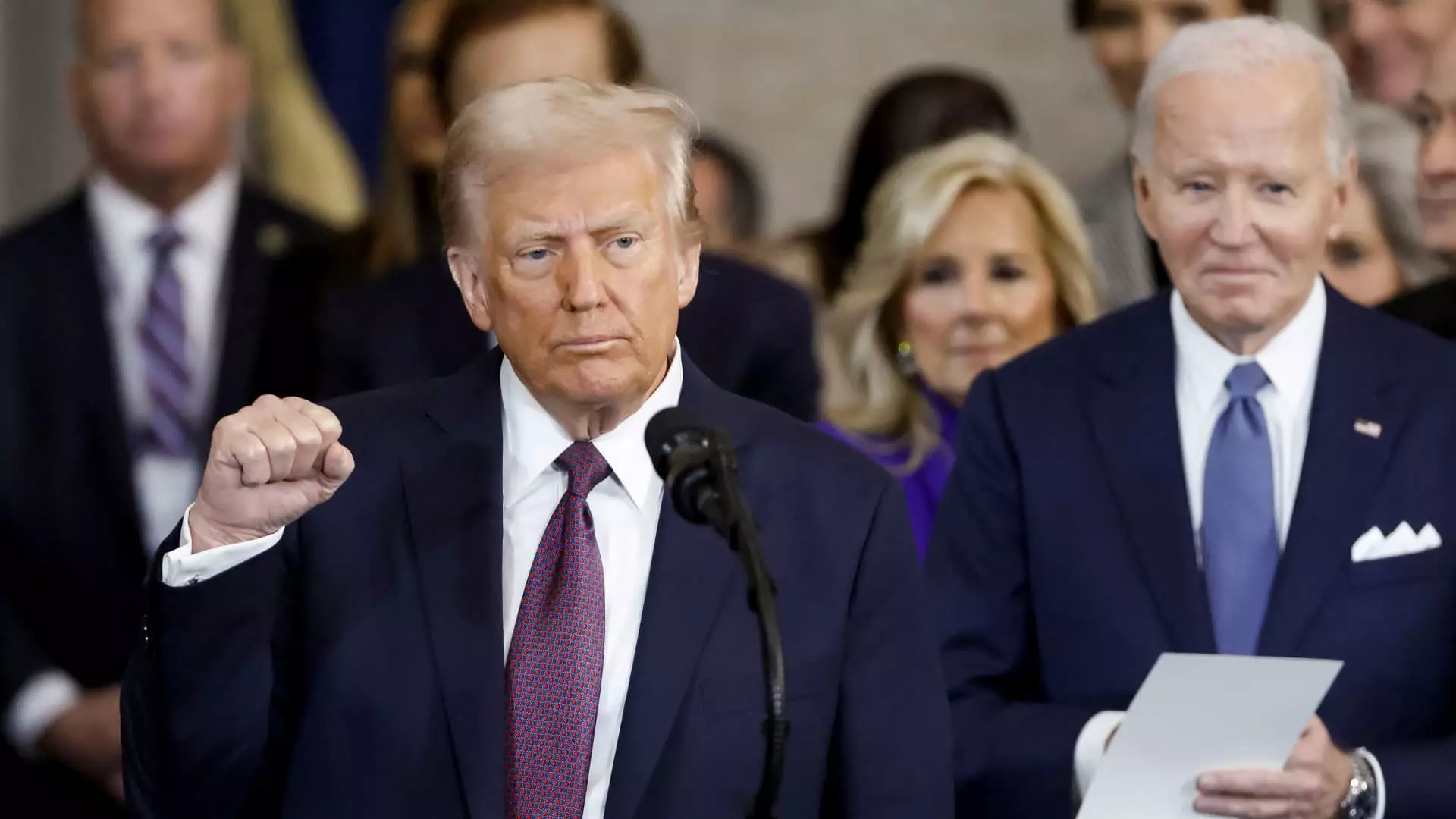In a recent interview, Howard Lutnick, the U.S. Commerce Secretary, didn’t hold back in assigning blame for economic woes to none other than former President Joe Biden. This shocking claim sidesteps the complexities of current economic indicators and directly implicates Biden as the architect of an economic landscape many deem perilous. This rhetoric serves a critical political purpose: to create a narrative that positions Donald Trump as the ultimate economic savior. By painting Biden as the sole villain, Lutnick and others in the Trump administration foster a dangerously simplistic and manipulative portrayal of our economic reality.
This narrative is not just a deflection of responsibility. It’s a calculated strategy to rally Trump’s base by suggesting a heroic struggle against a so-called “economic catastrophe” that supposedly emerged under Biden’s watch. However, anecdotes like this fall short of addressing the multifaceted nature of economic fluctuations, making a mockery of the nuanced analysis the American public deserves.
Numerical Deceptions and Public Perception
There is an unsettling disparity between the proclaimed economic hardships and the empirical data. For instance, under Biden’s leadership, the U.S. economy reportedly grew by an impressive 2.8% over the past year, while inflation rates have seen a significant decrease from a peak of 9.1% in June 2022 to a more manageable 2.9% by December. Yet, Lutnick argues vehemently that the blame lies exclusively with Biden, suggesting that the “economic data” of the present day should be disregarded in favor of a narrative more flattering to Trump’s legacy.
This manipulation of public sentiment reflects a deeper trend in political discourse that prioritizes narrative over reality. The emphasis on perceived threats and dangers becomes a powerful tool for shaping the public’s opinion, even if the underlying facts do not align. One must wonder—how effective can these tactics be if they disregard the true state of economic affairs? Are we really willing to accept a version of reality influenced more by political aspirations than actual data?
The Role of Media in the Economic Debate
The media, knowingly or unknowingly, often amplifies these distorted narratives. When prominent figures like Lutnick appear on influential platforms such as Bloomberg, they effectively gain a megaphone for their views, shaping public opinion in ways that can lead to societal division. The question then arises: should the media be more critical of these talking points that seem to serve less as informative insight and more as a theater of political warfare?
With economic conditions fluctuating and financial markets responding in real-time, it is imperative for journalists to dissect these proclamations critically. The media holds the responsibility to present a more rounded perspective, one that above all recognizes the interplay between different factors influencing the economy rather than laying blame solely at the feet of a political rival.
Economic Data and Its Political Weaponization
Lutnick’s comments raise an alarming notion: can economic data be altered to suit political agendas? His suggestion to reshape how GDP is measured resonates with a broader campaign against transparency in economic reporting—a trend initiated during Trump’s tenure that seems to continue unabated. By proposing to isolate government spending from GDP calculations, Lutnick risks distorting a foundational measure of economic health, a suggestion that many economists have decried as potentially misleading.
This situation epitomizes the ongoing struggle between politics and economic elucidation. When measures of economic success become entangled in political motivations, it undermines the public’s ability to grasp essential truths about their financial well-being. Is there a danger that voters will be swayed by a skewed perception, deeply colored by the political landscape rather than reality?
Consumer Confidence: A Telling Indicator
Compounding these issues is the disturbing drop in consumer confidence, which recently registered its most significant decline since August 2021. This is particularly troubling as we consider Trump’s claim to have inherited an “inflation nightmare.” With consumer confidence being a leading indicator of economic performance, the stark contrast between optimistic pronouncements from the administration and the distress signals from the everyday consumer presents a troubling dichotomy.
While Lutnick asserts Trump’s decisive action will spur economic growth, the facts suggest that confidence is waning among consumers—a sentiment that may indicate trepidation toward another economic downturn. As citizens struggle with their financial realities, the administration’s narratives may fall flat, becoming increasingly disconnected from lived experiences.
In a world where political aspirations shape economic discussions, it becomes necessary to question the integrity of these dialogues. People deserve leadership that acknowledges complexity rather than oversimplifying crises into mere talking points for political survival. Can we afford to operate in an environment where the truth is sacrificed on the altar of political expediency?

